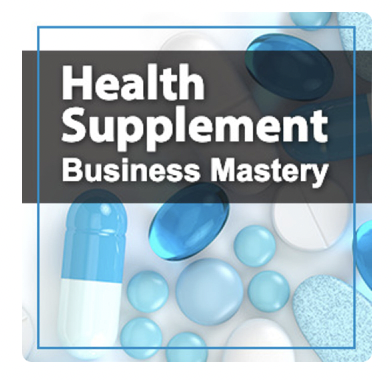With the increasing popularity of health and wellness supplements, advertising supplements effectively is vital to stand out in the market. But, where are the best places to advertise supplements?
The best places to advertise supplements often include social media platforms like Facebook and Instagram. Additionally, partnering with influential health and wellness websites or blogs allows you to reach a niche audience actively seeking supplement information and recommendations.
Are you looking for proven strategies to amplify your supplement advertising? Keep reading to gain valuable insights and actionable tips to elevate your supplement marketing efforts and get meaningful results.
Where is the Best Place to Advertise Supplements?
The best place to advertise supplements depends on your target audience, budget, and marketing objectives.
If your marketing budget is $0.00
Then your best bet is to put in a lot of sweat equity that doesn’t cost money but rather your time. So if you’re time rich and cash poor I recommend you put your time into blogging and building an email list. Blogging will pay off over time, but you have to stick with it for years and years. As soon as you have a few people who sign up to your email list, even if it’s just 10 people, start marketing your supplements to them.
If your marketing budget is under $10,000
Then you want to maximize every dollar of your advertising budget because $10K won’t take you very far. If this is the case, I recommend you put every dollar into Google Ads. Spread it out with $1,000 per month so you can adjust and make changes to not only the ads but also the landing page and offer you’re driving that traffic to. Focus on one product and one landing page for all 10 months.
If your marketing budget is over $10,000
With a budget of over $10K you may have twice that amount or 10 times that amount to play with. In either case you can now begin to add more than one traffic channel to the mix.
Here are some effective platforms and marketing channels to consider for supplements no matter what your budget is:
- Online Health and Wellness Communities: Engage with forums, discussion boards, and online communities focused on health, wellness, and fitness, where individuals interested in supplements are likely to be active. There are plenty of subreddit threads for every health challenge where you can engage. Just be sure to contribute first for quite some time before promoting your supplement. This is also great for the Zero to under 10K budget.
- Social Media Platforms: Utilize popular social media platforms like Facebook, Instagram, and Twitter to target specific demographics, engage with potential customers, and run targeted advertising campaigns. Facebook groups specific to the problem your supplement solves is a great place to become part of the community. But be sure to follow the rules of the group. And always contribute before promoting your supplement offer. Again great for the zero to under 10K budget when you have more time than money.
- Health and Fitness Influencers: Collaborate with influencers who have a strong presence in the health and fitness industry to promote your supplements to their followers and gain credibility. Using influencers for supplements can be tricky, before you step into this mind filed be sure to read my article on how to use influencers for marketing supplements here. This is a good option to consider for those over the $10k budget.
- Search Engine Advertising: Invest in search engine advertising to target individuals actively searching for supplements or related health topics. This is typically the fastest way to see if your sales page and offer works. Again perfect for the under $10k budget marketer.
- Health and Wellness Websites: Advertise on reputable websites that focus on health, nutrition, and wellness. This can include blogs, online magazines, and websites dedicated to providing evidence-based information.
- Fitness and Nutrition Publications: Consider placing advertisements in magazines, journals, and newsletters that cater to fitness enthusiasts, athletes, and individuals interested in nutrition and supplements. I would also consider sponsoring podcasts with paid ads as well here.
- E-commerce Platforms: Leverage e-commerce platforms like Amazon, Walmart, iHerb, or specialized supplement marketplaces to reach a wide customer base and take advantage of their built-in customer trust. Although getting your supplement product on there can be tricky and is still requires a paid advertising budget this is a good jump start for a supplement brand and a niche additional income for a more established brand.
- Health Professionals and Nutritionists: Collaborate with healthcare practitioners, nutritionists, and wellness coaches who can recommend your supplements to their clients.
- Local Advertising: Explore local advertising options such as community events, health fairs, and targeted print media in your area to reach potential customers within your region.
- Trade Shows and Health Expos: Participate in trade shows, health expos, and industry events where you can showcase your supplements, connect with potential customers, and network with industry professionals. Expo East, Expo West, and the NBJ Summit are the biggest in the supplement industry.
Remember marketing always requires you to analyze your target market, track the performance of different advertising channels, and adjust your strategy accordingly to maximize the effectiveness of your supplement advertising.
Can I Advertise Supplements on Google?

You can advertise supplements on Google. Google allows advertising for dietary supplements, but it has certain restrictions and policies in place to ensure the safety and accuracy of the ads. Here are a few key points to consider:
- Google’s Advertising Policies: Familiarize yourself with Google’s advertising policies, specifically the guidelines related to healthcare and medicine. Ensure that your supplement advertisements comply with these policies to avoid any potential issues.
- Supplement Approval Process: Google may require you to go through an approval process before running ads for certain types of supplements. This process helps ensure that the advertised products meet regulatory requirements and are safe for users.
- Restricted Supplements: There are certain types of supplements that have additional restrictions on advertising due to their nature or potential risks. Examples include anabolic steroids, SARMS, and some weight-loss supplements. Make sure to review Google’s policies to understand any limitations that may apply to your specific product.
- Ad Content and Claims: Your supplement ads should adhere to Google’s policies regarding ad content and claims. It is important to provide accurate information and avoid making misleading or unsupported claims about the benefits or effectiveness of your supplements. For a comprehensive rundown on supplement claims I breakdown what you can and can’t say in this easy to understand article.
- Landing Page and Website Compliance: Ensure that your supplement’s landing page and website comply with Google’s policies, including requirements related to transparency, user safety, and accurate representation of your products.
- Quality Score and Ad Rankings: Google assesses the quality and relevance of ads through its Quality Score system. To improve your ad rankings and performance, focus on creating well-crafted ads with compelling and relevant content.
It’s essential to carefully review and understand Google’s advertising policies and guidelines regarding ads for supplements. Adhering to these policies will help you create compliant and effective advertising campaigns for your supplements on the Google platform.
Can You Advertise Supplements on Instagram?
You can advertise supplements on Instagram. Instagram offers various advertising options that allow you to reach your target audience and promote your supplement products effectively.
Here are some key points to consider when advertising supplements on Instagram:
- Instagram Ads: Utilize Instagram’s native advertising platform to create and run sponsored ads. You can choose from various ad formats, including photo ads, video ads, carousel ads, and story ads to showcase your supplements to Instagram users.
- Targeting Options: Leverage Instagram’s targeting features to reach specific demographics, interests, and behaviors relevant to your supplement audience. This allows you to refine your ad targeting and reach individuals who are more likely to be interested in your products.
- Influencer Marketing: Collaborate with health and wellness influencers on Instagram who have a significant following and engagement in the fitness, nutrition, or wellness space. Influencers can create sponsored posts or stories featuring your supplements, providing exposure to their audience and potentially driving sales.
- Branded Content Ads: Instagram offers branded content ads, allowing you to amplify the reach of influencer-created content by promoting it as an ad. This helps you leverage the influencer’s credibility and audience while expanding your brand’s visibility.
- Hashtag Campaigns and User-Generated Content: Encourage users to create and share content related to your supplements using specific hashtags. User-generated content can serve as social proof and help build brand awareness and engagement.
- Instagram Shopping: Utilize Instagram Shopping features to tag your supplement products in posts and stories. This allows users to directly access product information and pricing, and make purchases without leaving the Instagram app.
- Engaging Visual Content: Create visually appealing and engaging content that highlights the benefits and unique selling points of your supplements. Use high-quality images, videos, and compelling captions to capture users’ attention and generate interest in your products.
- Compliance with Regulations: Ensure that your supplement advertisements on Instagram comply with relevant regulations and guidelines, including those related to health claims and transparency. Avoid making unsupported or misleading claims about the effectiveness or benefits of your supplements.
Remember to track and analyze the performance of your Instagram ads using the platform’s analytics tools. This will help you optimize your campaigns, refine your targeting, and maximize the impact of your supplement advertising efforts on Instagram.
Can You Advertise Supplements on Facebook?

You can advertise supplements on Facebook, and supplements can be sold on the platform as well. Facebook has advertising options and features that allow you to promote and sell your supplements effectively. However, it’s important to note that there are certain policies and guidelines to follow.
Here are some key points to consider when advertising and selling supplements on Facebook:
- Facebook Advertising: Utilize Facebook’s advertising platform to create and run sponsored ads for your supplement products. You can choose from various ad formats, such as image ads, video ads, carousel ads, and collection ads to showcase your supplements to Facebook users.
- Ad Content and Claims: Ensure that your supplement ads comply with Facebook’s advertising policies, which include guidelines on ad content and claims. Provide accurate information and avoid making misleading or unsupported claims about the benefits or effectiveness of your supplements.
- Targeted Advertising: Take advantage of Facebook’s robust targeting options to reach specific demographics, interests, and behaviors relevant to your supplement audience. This allows you to refine your ad targeting and reach individuals who are more likely to be interested in your products.
- Facebook Shops: Utilize Facebook Shops, an e-commerce feature, to create an online storefront and sell your supplement products directly on the Facebook platform. Facebook Shops allows users to browse, purchase, and checkout without leaving the Facebook app.
- Compliance with Regulations: Ensure that your supplement advertisements and product listings on Facebook comply with relevant regulations and guidelines, including those related to health claims and transparency. Adhere to any applicable regulatory requirements specific to supplements in your target market.
- Ad Review Process: Facebook has an ad review process to ensure compliance with its policies. Your supplement ads may be reviewed before they are approved and shown to the public. Be mindful of this process when planning your advertising campaigns.
- Content Strategy and Engagement: Create engaging and informative content related to supplements, health, wellness, and nutrition. This can include educational posts, tips, customer testimonials, and relevant articles to build credibility and engage your Facebook audience.
- Community Guidelines: Familiarize yourself with Facebook’s community guidelines to ensure that your content, including customer reviews and comments, aligns with the platform’s policies.
It’s crucial to review and understand Facebook’s advertising policies and guidelines specific to supplements to ensure compliance and maximize the effectiveness of your advertising and selling efforts on the platform.
Discover the 3 funnels that can help your health supplement business succeed.

Listen to the Health Supplement Business Mastery Podcast for for dietary supplement entrepreneurs and marketers.




